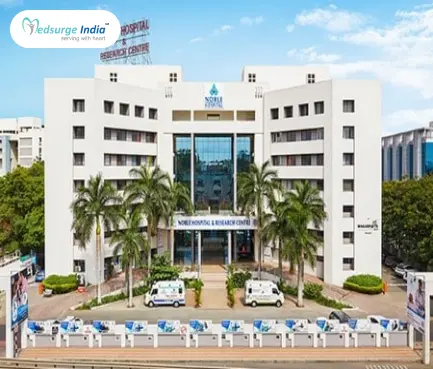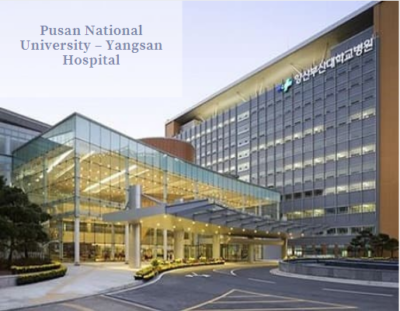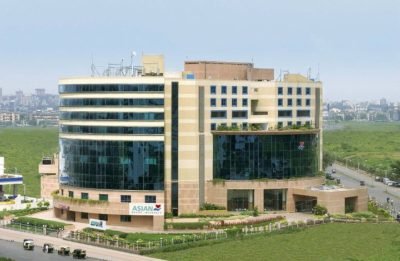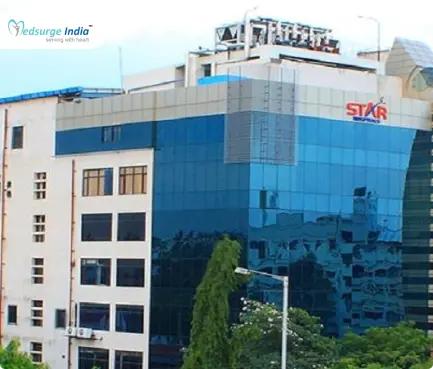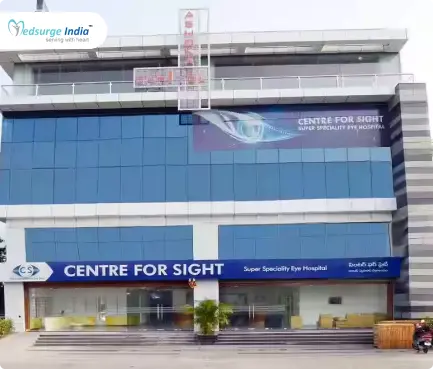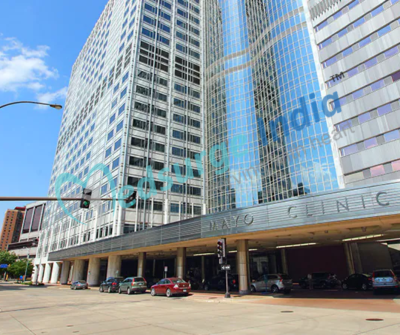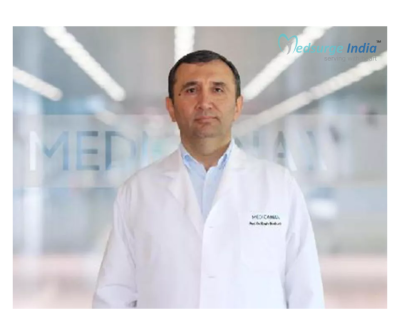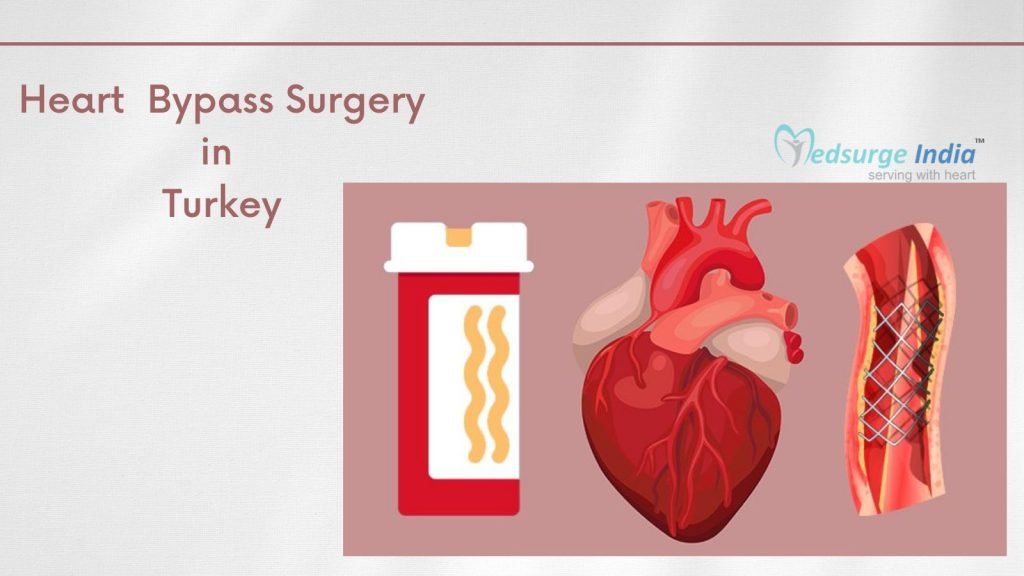
The most common type of cardiac surgery performed on adults is heart bypass surgery. When one or more of the blood arteries that deliver blood to the heart muscles become partially clogged, doctors propose heart bypass surgery. Heart bypass surgery is a difficult treatment that takes a long time to prepare for and recover from. Although some people require emergency heart bypass surgery in Turkey, the majority of the time the procedure is planned.
The process of heart bypass surgery in Turkey is relatively safe and successful in reducing the risk of heart attack and fatality. The surgery may also help with coronary artery disease symptoms including chest pain.
The cost of heart bypass surgery in Turkey varies from one hospital to the next. There are various elements that influence the final cost that patients may face if they choose to receive treatment in Turkish hospitals.
Consider Turkey for your upcoming procedure or special treatment. In this charming country, you can enjoy the unique blend of Oriental, European, and Arab cultures, as well as the great quality and accessibility of reasonable medical services. You can also combine your treatment with a nice holiday in Turkey. Istanbul is an incredible city. Many people travel to Turkey for medical treatment, but they also get to experience this fascinating city. Istanbul is a city rich in culture, history, and delicious cuisine.
What Is Heart Bypass Surgery?
Heart bypass surgery is a type of heart surgery that improves blood flow to the heart bypassing a blocked artery. In this procedure, the surgeon takes a healthy blood vessel from another region of the body and joins it to the start and end of the blockage, allowing blood to flow in a different direction. This new channel permits blood to flow past the blocked location, allowing more blood to reach the heart.
Coronary artery disease is treated with bypass surgery. When a waxy substance called plaque builds up inside your heart’s arteries, it prevents blood and oxygen from reaching it.
There are four different types of heart bypass surgery, depending on how many arteries are blocked
- Single Bypass Surgery
- Double Bypass Surgery
- Triple Bypass Surgery
- Quadruple Bypass Surgery
Why Individuals Should Prefer Turkey for Heart Bypass Surgery?
Turkey is one of the most fascinating countries in the world, with stunning beaches, blue voyage trips, historical and religious sites, world heritage sites, and much more. In addition to vacationing in Turkey, the country provides a wide range of medical specializations, including heart surgery, cosmetic and plastic surgery, spine surgery, and more.
Turkey has a number of globally approved hospitals that perform heart bypass surgery. Because of the delicate nature of the procedure, Turkish cardiac surgery hospitals ensure that it is carried out by a team of highly qualified and skilled doctors. Prior to surgery, a team of doctors examines the patients thoroughly and orders a few imaging tests to determine the site of the obstruction. Prior to the treatment, a detailed strategy is established and shared with the patients.
Heart Bypass Surgery Cost in Turkey
On average, Heart Bypass Surgery Cost in Turkey starts from USD 40000. The prices of Heart Bypass Surgery in Turkey will depend on the type of hospital and the location you choose for the treatment.
Estimated prices Depend on Different Cities in Turkey
| Cities | Starting Prices |
| Istanbul | USD 40000 |
| Ankara | USD 40000 |
| Antalya | USD 40000 |
| Izmir | USD 40000 |
| Bursa | USD 40000 |
| Adana | USD 40000 |
Note: Do remember that the pricing and the treatment for Heart Bypass Surgery Cost in Turkey will vary depending on the patient’s choice and other various factors.
Factors That Can Affect Heart Bypass Surgery Cost in Turkey
The standard and grade of medical care and amenities are comparable to those of the most prestigious healthcare facilities in the world, even when the expense of lodging, meals, and transportation is taken out. The following here are some variables that can affect Heart Bypass Surgery Cost in Turkey:
- Medication costs.
- Duration of treatment.
- Geographical location.
- Hospitalization expenses.
- Government policies and subsidies.
- Medical tourism packages.
- Hospital reputation and infrastructure.
- The expertise and experience of medical professionals.
- The type and frequency of diagnostic procedures.
- The choice of treatment modality.
Under the direction of the most skilled physicians, Medsurge India provides patients with the lowest Heart Bypass Surgery Cost in Turkey.
Who Is the Right Candidate for Heart Bypass Surgery?
When plaque forms on the artery walls, less blood flows to the heart muscle. Atherosclerosis is a form of coronary artery disease (CAD).
If the heart doesn’t get enough blood, it will become tired and eventually fail. Any artery in the body might be affected by atherosclerosis.
If your coronary arteries become so narrowed or clogged that you are in danger of having a heart attack, your doctor may propose heart bypass surgery.
When the blockage is too severe to be treated with medicine or other treatments, your doctor may propose bypass surgery.
Get Free Cost Estimation
Procedure
What Is the Procedure of Heart Bypass Surgery?
Before the Procedure
Blood tests, chest X-rays, and an electrocardiogram will be performed prior to surgery (EKG). Coronary angiography is an X-ray technique that your doctor may perform. A unique dye is used to demonstrate how blood flows through your arteries.
Your doctor will also inform you if any dietary or lifestyle adjustments, as well as any medication changes, are required prior to surgery. Tell your doctor about any vitamins or supplements you are taking, even if they are natural, in case they’re affecting your bleeding risk.
You will also need to arrange for your post-surgery rehabilitation.
During the Procedure
You will be dozing off the entire time. The majority of surgeries take 3 to 6 hours. In your mouth, a breathing tube is inserted. It’s connected to a ventilator, which will breathe for you throughout and after the procedure.
A lengthy cut is made across the center of your chest by a surgeon. They will then split your rib cage open to gain access to your heart.
Your surgical team will use drugs to halt your heart temporarily. When your heart stops beating, a gadget called a heart-lung machine keeps blood and oxygen flowing through your body.
The surgeon will next take a graft (a blood vessel) from another area of your body, such as your chest, leg, or arm. One end will be connected to your aorta, a major artery that exits your heart. The other end will be connected to an artery beneath the obstruction.
The graft opens up a new pathway for blood to flow to your heart. If you have several blockages, your surgeon may do further bypass surgeries at the same procedure (double bypass, triple bypass, etc.).
The surgeon may not need to stop your heart in some circumstances. Off-pump procedures are what they’re called. Others merely require minor alterations. “Keyhole” procedures are what they’re termed.
Robotic equipment is used in some procedures. Your surgeon will advise you on the best procedure for you.
After the Procedure
You will awaken in a critical care unit (ICU). You will still have the breathing tube in your mouth. You won’t be able to communicate and will be uncomfortable. Nurses will be on hand to assist you. After a few hours, when you can breathe on your own, they’ll remove the tube.
The medical team would most likely have inserted a tiny tube called a catheter into your bladder to collect urine during the treatment. They will take it away once you are able to get up and use the restroom alone.
Before the procedure, they attached an IV line to give you water and drugs. Once you can eat and drink on your own and no longer require IV drugs, it will be removed.
After the treatment, fluid will build up around your heart, so your doctor will insert tubes into your chest. They will stay for one to three days after surgery to remove the fluid.
You may get chest discomfort. The first 2 to 3 days after the operation will be the most painful. You will most likely be prescribed painkillers for that.
You will also be linked up to devices that continuously monitor your vital indicators, such as your heart rate and blood pressure.
After surgery, you should be able to walk within 1 to 2 days. You will spend a few days in the ICU before being transferred to a hospital room. Before returning home, you will spend 3 to 5 days there.
What Is the Recovery Time?
A tube will be inserted into a person’s throat once they wake up to help them breathe. It will be unusual and unsettling, but it is required. A doctor will usually remove the tube within 24 hours.
A person will spend around a week in the hospital after surgery on average. Soreness and night sweats are common, and because there is likely to be some fluid in the lungs, people can anticipate coughing a lot.
After the breathing tube has been withdrawn, most people begin to eat and move around.
Platelet inhibitors, which assist avoid blood clots, are commonly used as post-surgery treatments.
The Most Important Frequently Asked Questions
Q: How Long Does It Take for a Heart Bypass Patient to Fully Recover?
A: It takes time to recuperate following a coronary artery bypass graft procedure, and everyone recovers at a different pace. After 1 day, 3 days, and 5 or 6 days, you should be able to sit in a chair, walk, and walk up and downstairs. The majority of people recover completely within 12 weeks of surgery.
Q: What Is the Most Common Post-Open-Heart Surgery Complication?
A: post-open-heart surgery complications are –
- Bleeding is a potential risk.
- An abnormal cardiac beat.
- Infections in the wound on the chest.
- Memory loss or difficulty thinking clearly, often improves in six to twelve months.
- Kidney issues.
- Stroke.
- If a blood clot comes out soon after surgery, it can cause a heart attack.
Q: After Open-Heart Surgery, How Long Will My Chest Hurt?
A: On either side of your chest, you may experience some intense aches. It is possible that your chest, shoulders, and upper back hurt. After 4 to 6 weeks, these symptoms normally improve. Your chest incision and the area where the healthy blood artery was removed may be uncomfortable or swollen.
Q: What Is Normal Blood Pressure After Bypass Surgery?
A: A normal systolic blood pressure is less than 120 millimeters of mercury (mm Hg). Patients having blood pressure outside the range of 75 to 135 mm Hg during surgery, and 85 to 145 mm Hg before and after surgery, had a greater risk of death.
Q: Is It Possible That a Lack of Sleep Causes High Blood Pressure?
A: Sleep is supposed to help your body balance stress and metabolism by regulating hormones. A lack of sleep can trigger hormonal changes, which can contribute to high blood pressure and other heart disease risk factors.
Top Hospitals for Heart Bypass Surgery in Turkey
Top Doctors for Cardiology And Cardiac Surgery
Prof. Dr. Engin Bozkurt
Professor
Experience: 30 years of experience
Medicana International Istanbul
Istanbul, Turkey
Dr Fahrettin Uysal
Associate Consultant
Experience: 15 years of experience
Medicana International Istanbul
Bursa, Turkey
Dr. Ibrahim Duran
Principal Consultant
Experience: 21 years of experience
Medicana International Istanbul
Istanbul, Turkey
MD Ümit Bilge SAMANLI
Consultant
Experience: 28 years of experience
Memorial Hospitals Group, İstanbul
Istanbul, Turkey
Dr. Bengi Baser
Senior Consultant
Experience: 20 years of experience
Medicana International Istanbul
Istanbul, Turkey
Prof. Tijen Alkan Bozkaya
Chairman
Experience: 31 years of experience
Yeditepe University Healthcare Institutions, Istanbul
Istanbul, Turkey
Dr. Vedat Aytekin
Head of Department
Experience: 26 years of experience
American Hospital, Istanbul
Istanbul, Turkey
Prof. Rukiye Nurten EKER ÖMEROĞLU
Professor
Experience: 43 years of experience
Memorial Hospitals Group, İstanbul
Istanbul, Turkey
Assoc. Prof. Dr. Gökhan Albayrak
Associate Professor
Experience: 22 years of experience
Istanbul, Turkey
Prof. Dr. Muzaffer Degertekin
Professor
Experience: 30 years of experience
Yeditepe University Healthcare Institutions, Istanbul
Istanbul, Turkey
Dr. Ahmet Anil Sahin
Associate Professor
Experience: 15 years of experience
İstinye Hospital, Bahçeşehir
Istanbul, Turkey
Dr. Selim Topcu
Senior Consultant
Experience: 15 years of experience
Medicana International Istanbul
Istanbul, Turkey
Dr. Batuhan Ozay
Professor
Experience: 27 years of experience
Medicine Hospital, Istanbul
Istanbul, Turkey
Dr. Ozer Selimoglu
Senior Consultant
Experience: 19 years of experience
Kolan International Hospital, Istanbul
Istanbul, Turkey
Dr. Vecih Oduncu
Consultant
Experience: 21 years of experience
Medical Park, Bahcelievler Hospital, Istanbul
Istanbul, Turkey
Dr. Harun Gulmez
Consultant
Experience: 12 years of experience
Kolan International Hospital, Istanbul
Istanbul, Turkey
Dr. Aysegul Karahan Zor
Consultant
Experience: 14 years of experience
Anadolu Medical Center, Kocaeli, Istanbul
Kocaeli, Turkey

